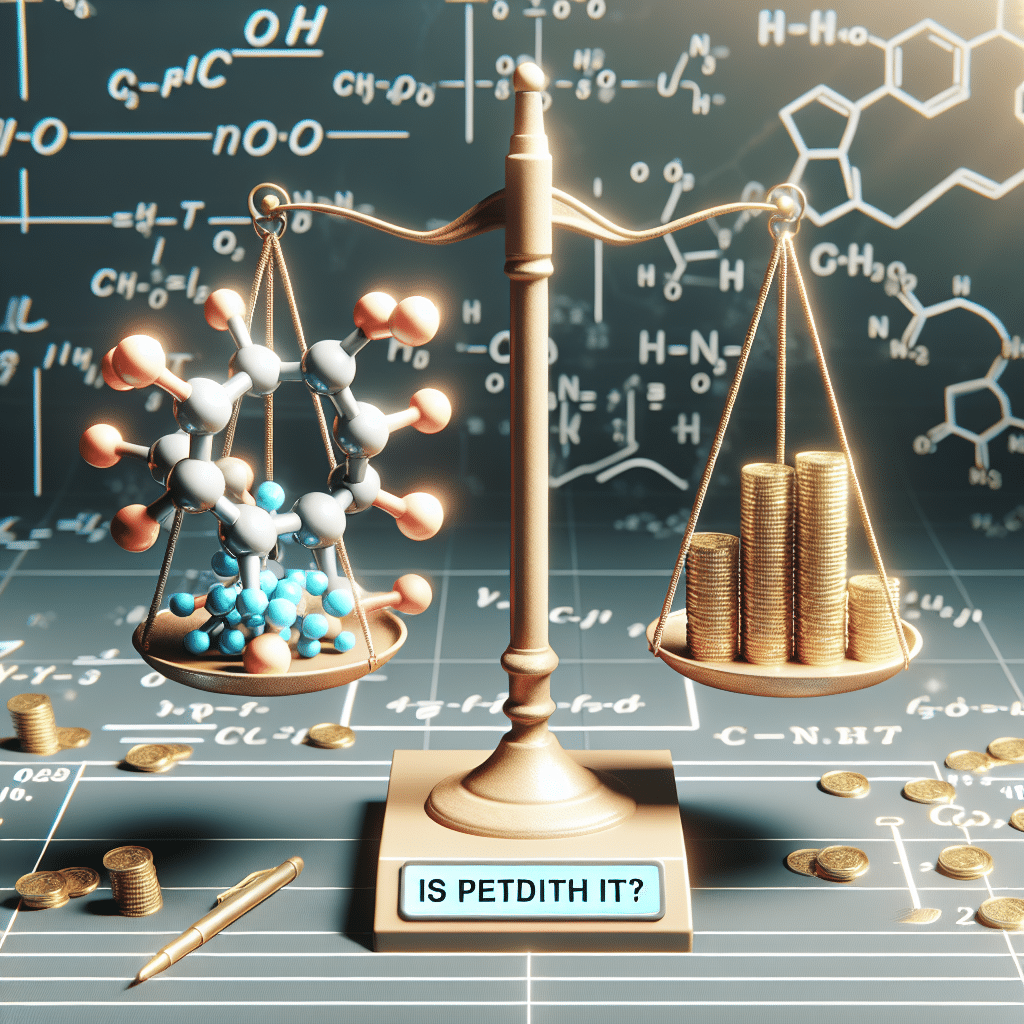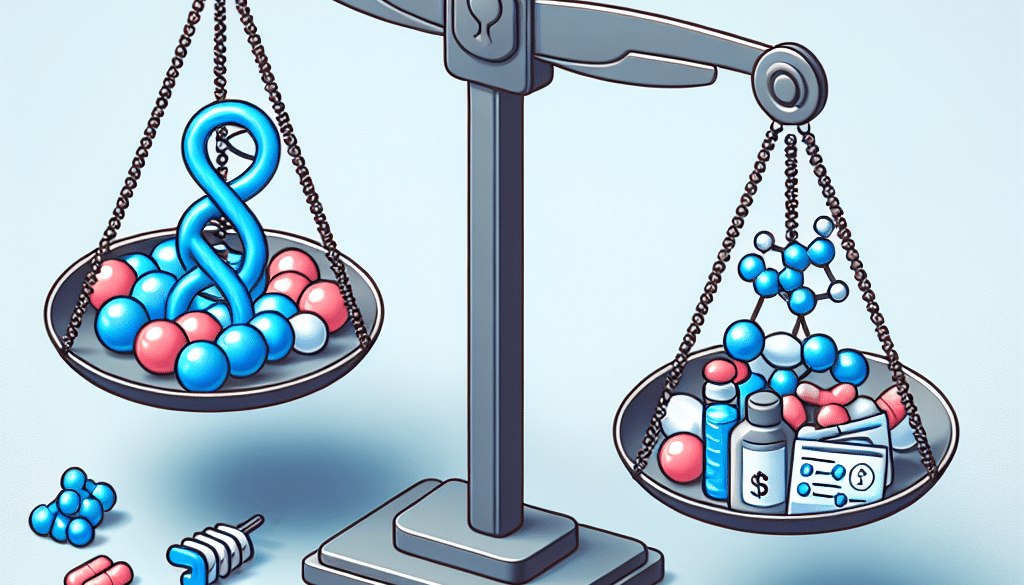Is Peptide Worth It? Learn More
Table of Contents
- Peptide Supplements: Are They Worth the Investment?
- Understanding Peptides and Their Functions
- The Promises of Peptide Supplements
- Scientific Evidence Supporting Peptide Efficacy
- Collagen Peptides and Skin Health
- Peptides for Weight Management
- Muscle Growth and Recovery
- Healing and Immune Function
- Potential Risks and Considerations
- Case Studies and Real-World Examples
- Conclusion: Weighing the Pros and Cons
- ETprotein: Your Trusted Source for Quality Protein Products
Peptide Supplements: Are They Worth the Investment?

Peptides have become a buzzword in the health and wellness industry, with claims ranging from anti-aging benefits to muscle building and enhanced recovery. But with the plethora of supplements on the market, consumers are left wondering: are peptide supplements truly worth it? This article delves into the science behind peptides, their benefits, potential risks, and whether they live up to the hype.
Understanding Peptides and Their Functions
Peptides are short chains of amino acids, the building blocks of proteins. Unlike proteins, peptides are smaller and more easily absorbed by the body, which allows them to act quickly and effectively. They are found naturally in the body and play a pivotal role in various biological functions, including hormone production, immune response, and cell signaling.
The Promises of Peptide Supplements
Peptide supplements are often marketed with a range of health claims. Here are some of the most common purported benefits:
- Anti-Aging: Some peptides are believed to stimulate collagen production, potentially reducing wrinkles and improving skin elasticity.
- Weight Loss: Certain peptides may enhance fat burning and increase satiety, aiding in weight management.
- Muscle Growth: Peptides like creatine and BCAAs are popular among athletes for their potential to support muscle growth and recovery.
- Improved Healing: Some research suggests that peptides can accelerate the healing process of injuries and wounds.
- Immune System Support: Peptides can play a role in bolstering the immune system, potentially protecting against various diseases.
Scientific Evidence Supporting Peptide Efficacy
Let’s examine the scientific evidence behind these claims to determine if peptides are indeed worth considering as a supplement.
Collagen Peptides and Skin Health
Several studies have shown that collagen peptides can improve skin health. A 2019 review in the Journal of Drugs in Dermatology highlighted that collagen supplementation could lead to significant improvements in skin elasticity and hydration. However, it’s important to note that results can vary, and more research is needed to fully understand the long-term effects.
Peptides for Weight Management
Peptides such as GLP-1 have been studied for their role in weight management. Research published in the Journal of Endocrinology suggests that GLP-1 analogs can reduce appetite and food intake, leading to weight loss in obese individuals. However, these peptides are typically administered through prescription medications rather than over-the-counter supplements.
Muscle Growth and Recovery
Peptides like creatine are well-researched and have been shown to support muscle growth and recovery. A meta-analysis in the International Journal of Sport Nutrition and Exercise Metabolism concluded that creatine supplementation can enhance muscle mass and strength during resistance training.
Healing and Immune Function
Research on peptides for healing and immune function is promising but still in the early stages. A study in the journal Peptides found that certain peptides could speed up the wound healing process. Additionally, peptides like thymosin alpha-1 have been investigated for their immune-modulating properties, as per the Annals of the New York Academy of Sciences.
Potential Risks and Considerations
While peptides may offer benefits, there are also potential risks and considerations to keep in mind:
- Quality and Purity: The supplement industry is not strictly regulated, leading to concerns about the quality and purity of peptide products.
- Side Effects: Some peptides can cause side effects, such as skin reactions or gastrointestinal issues.
- Long-Term Safety: There is limited long-term safety data on the use of peptide supplements.
- Cost: Peptide supplements can be expensive, and their cost-effectiveness is a valid concern for many consumers.
Case Studies and Real-World Examples
Real-world examples and case studies can provide insight into the effectiveness of peptide supplements. For instance, a case study published in the Aesthetic Surgery Journal reported significant skin improvement in a patient following the use of a topical peptide serum. However, such case studies are anecdotal and should be considered alongside broader research.
Conclusion: Weighing the Pros and Cons
In conclusion, while peptides have demonstrated potential in various health areas, it’s essential to approach them with a critical eye. Consumers should consider the scientific evidence, potential risks, and cost before adding peptide supplements to their regimen. Consulting with a healthcare professional is also advisable to ensure that any supplement use is appropriate for one’s individual health needs.
ETprotein: Your Trusted Source for Quality Protein Products
If you’re looking for high-quality protein products, ETprotein offers a range of organic and non-GMO options. Their extensive selection includes organic rice protein, pea protein, and various seed proteins, catering to diverse dietary needs and preferences. With a commitment to purity and excellence, ETprotein is a reliable choice for those seeking to enhance their nutrition with protein supplements.
About ETprotein:
ETprotein, a reputable protein and L-(+)-Ergothioneine (EGT) Chinese factory manufacturer and supplier, is renowned for producing, stocking, exporting, and delivering the highest quality organic bulk vegan proteins and L-(+)-Ergothioneine. They include Organic rice protein, clear rice protein, pea protein, clear pea protein, watermelon seed protein, pumpkin seed protein, sunflower seed protein, mung bean protein, peanut protein, and L-(+)-Ergothioneine EGT Pharmaceutical grade, L-(+)-Ergothioneine EGT food grade, L-(+)-Ergothioneine EGT cosmetic grade, L-(+)-Ergothioneine EGT reference grade and L-(+)-Ergothioneine EGT standard. Their offerings, characterized by a neutral taste, non-GMO, allergen-free attributes, with L-(+)-Ergothioneine purity over 98%, 99%, cater to a diverse range of industries. They serve nutraceutical, pharmaceutical, cosmeceutical, veterinary, as well as food and beverage finished product distributors, traders, and manufacturers across Europe, USA, Canada, Australia, Thailand, Japan, Korea, Brazil, and Chile, among others.
ETprotein specialization includes exporting and delivering tailor-made protein powder and finished nutritional supplements. Their extensive product range covers sectors like Food and Beverage, Sports Nutrition, Weight Management, Dietary Supplements, Health and Wellness Products, and Infant Formula, ensuring comprehensive solutions to meet all your protein needs.
As a trusted company by leading global food and beverage brands and Fortune 500 companies, ETprotein reinforces China’s reputation in the global arena. For more information or to sample their products, please contact them and email sales(at)ETprotein.com today.












